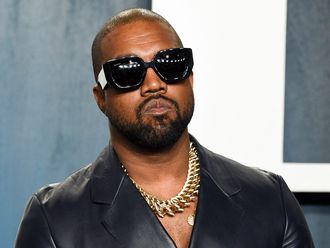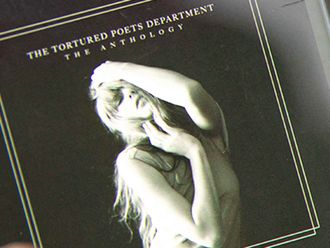
Here in Los Angeles radio stations seem to play it once every hour. Low Life, the collaboration between The Weeknd and Future, only dented the Billboard Top 20 on its release, but the tune has dominated radio all through 2016. On the face of it, it’s an unlikely candidate for Song of the Year: a stealthy, subdued groove that feels closer to reggae than rap, a production shivery with eerie flickers of ambient electronic texture. Although The Weeknd is just the “featured” artist, Low Life is as much his tune as Future’s. Abel Tesfaye’s swooning falsetto is draped over half the record, while the mood of sombre sensuality is identical to all the other Weeknd songs from 2015 or earlier that have never left the airwaves.
Radio programmers do their research, they find out what the public wants to hear. If Low Life and other Weeknd hits — The Hills, Often, Might Not, plus the title track of Tesfaye’s new album Starboy — reign, it’s clearly by popular demand. Something about the texture and tone of this Ethiopian-Canadian singer’s music speaks to people, speaks to the current moment. So what is it saying?
From his early mixtapes like 2010’s House of Balloons to his commercial breakthrough with 2015’s Beauty Behind the Madness, the Weeknd vibe has been unvaried to the point of fixation. Dissolution is the atmosphere, the mise en scene, for virtually all his songs. Take Might Not, his collaboration with the rapper Belly (who belongs to Tesfaye’s Toronto clique XO). It’s a blurry snapshot from a long night of chemical excess: Tesfaye, close to passing out, wonders plaintively whether “this time, I might not make it”. Then there’s The Hills, on which Tesfaye sings in near-dissonant tones about a surreptitious relationship, a druggy unromance that only takes place in the small hours just before dawn. The song pivots around the anguished ecstasy of the admission “when I’m [expletive] up, that’s the real me”. Tesfaye claims that his audience find a liberating honesty in that line, telling an interviewer recently that “it wasn’t until the song blew up that I realised how much of a reality it was in most people’s lives ... People might look at it as a sad reality, but when I perform it, the people sing it with so much joy.”
Joy is hardly the mood communicated by The Weeknd’s songs, though, or conveyed by the arty murk of his videos: uniformly smile-free zones, pretentiously thick with shadow, peopled by starved-looking and dead-eyed models clad in lingerie. The colour-palette is cold blue and purple; the visual motifs and storyboard grammar nod to soft porn and horror movies. In the promo for Starboy — yet another self-consciously noir Weeknd video in which it looks like the crew forgot to turn on half the lights — Tesfaye trashes his luxury penthouse even as the lyrics flaunt all the trophies of fame: the million-dollar cars, the doubled indulgence of snorting highest-grade cocaine off ebony tables. Like Drake, the Weeknd can’t resist boasting about the fruits of fame while simultaneously hinting that expensive as they are, they remain cheap thrills: worthless and unsatisfying.
Hedonism, pursued to the hilt, but creased with emptiness, loneliness and weakness: this was the Weeknd’s subject even before he was successful. From the start his lyrics referenced potions, powders and pills; his production trademark was sampling from genres like shoegaze or goth for gauzy wafts of melancholy texture or frayed vocals (most memorably Beach House’s Master Of None, as used on The Party and the After Party, and Siouxsie and the Banshees’ Happy House, for House of Balloons/Glass Table Girls.)
The name the Weeknd perhaps expresses the ideal that he aspired to even when hustling and semi-homeless: life as a party that never ever stops. What the punters experience as a release from the workaday week becomes a perpetual condition for the famous artist (Weeknd performs constantly, rarely visits his home). But peak experiences, by definition, only make sense — can only really be felt — when they’re surrounded by larger expanses of down time. Attempting to live on a constant high guarantees ennui and desolation. Perhaps there’s a second, semi-conscious or unintended resonance to the name The Weeknd, which phonetically sounds like “weakened”. Fey and fragile, Tesfaye’s is the true voice of the faded generation: he sounds drained by overindulgence, his will to resist eroded by the availability of temptations and easy triumphs.
The new album promises a slight shift in sonic emphasis away from slow jams and woozy ambience, with up-tempo 80s influences coming to the fore: Prince, Debarge, and, more surprisingly, alternative artists including the Smiths, Talking Heads and Bad Brains have all been mentioned by Tesfaye. Brisk and boppy, False Alarm sounds like a flashback to electroclash, that 80s-resurrecting fad of the early 2000s. Then there are the collaborations with Daft Punk, whose own most-loved music harked back to the same decade, on Starboy and I Feel It Coming.
Starboy is named in homage to Bowie, Tesfaye has said. But rather than Starman, the true reference point is Fame, the glam rocker’s harrowing dispatch from the hollow centre of stardom. Where Bowie sang obliquely of drugs as a chemical crutch for self-confidence (“what you need, you have to borrow”) and the jostling ego games of stars (“is it any wonder I’ll reject you first”), Abel sings about isolation (“house so empty, need a centrepiece”) and soulless materialism (“we don’t pray for love, we just pray for cars”). Similarly, False Alarm alludes fleetingly to “a dark philosophy” — perhaps the same sort of spiritualised nihilism referenced in Might Not, when Belly raps about how “no religion is the new religion”.
There are other parallels with Bowie in the 70s. Decadence was a defining leitmotif for glam: the apocalyptic notion, at once alarming and alluring, that the west’s trajectory was downward, its civilisational strength rotted away by crumbling values, the loss of a sense of purpose. Part of the fantasy scenario that Bowie projected towards his fans was the present as a decadent period that would soon be followed by some kind of authoritarian backlash, an idea modelled on the historical precedent of the Weimar Republic’s eclipse by the Third Reich.
When Tesfaye anointed himself King of the Fall, it was a reference to an autumn tour, not to Spengler’s Decline and Fall of the West. Still, in the current context of Trump’s triumph — a fame monster spawned by celebrity culture now implausibly cast as the heroic strongman who’ll “drain the swamp” — it’s tempting to imagine the Weeknd as the world’s prime exponent of Weimar’n’B. His music makes giving in and giving up feel glamorous and irresistible. While few Weeknd fans will ever get to experience his level of unbridled license, his music offers an aspirational fantasy of corruption and carelessness. Small-scale, low-budget versions are no doubt enacted every weekend.
By this point his louche nihilism has become such a shtick that the only way Tesfaye could startle us would be to write a song in praise of the invigorating effects of fresh air and a brisk walk through the countryside. But another way he could surprise — and evolve — would be to address realities outside the solipsistic bubble. Tesfaye has political views but he chooses to leave them out of his work, telling VMAN magazine that while he admires artists who are able to handle such weighty subject matter, “when I step into the studio I step out of the real world, and it’s therapeutic. It’s an escape.” That’s why, although his fluttery falsetto echoes Curtis Mayfield or Marvin Gaye, there’s no counterpart to Move On Up or What’s Going On in his songbook. (He did donate $250,000 (Dh918,287) to the Black Lives Matter movement in August). Perhaps it would be too much of a leap for The Weeknd to abandon abandonment, swap consciousness-razing for consciousness-raising, and start making woke work. But you have to wonder what might happen if Tesfaye tried to make virtue sound as seductive as he makes vice.













